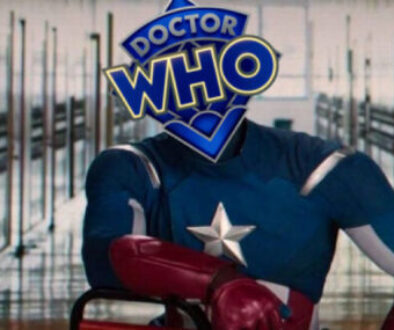Clara Oswald: A Study of the Impossible Storyteller (Part 1)
Guest contributor Ruth Long continues her tribute series looking back over Jenna Coleman’s companion.

As we look back on her final act, I wanted to pay tribute to the companion that has defined and driven my experience as a fan of the show. ‘A Study of the Impossible’ is a series of articles examining the character of Clara Oswald. In each chapter, we will be exploring the Impossible Girl in her journey with the Doctor: from the moment she set foot in the TARDIS, to the day she bade us farewell. This third installment (Chapter 3 Part 1) will predominantly focus on the beginning of Series 9, though naturally, there will be references made to her entire tenure.
“I’ll be a story in your head. But that’s ok, we’re all stories in the end…”
There’s something incredibly special about seeing a character’s story truly culminate. When the denouement is achieved in such a way that every step in the journey that preceded it is fashioned into a piece of a grand mosaic: together forming the ultimate picture. You stand back, take it in, and realize that maybe this was our destination all along; we just came the long way round. Clara’s is one such story, but hers is not merely satisfying in its execution: it’s extraordinary. What the writing team has accomplished defies belief in its complexity; brimming with nuance, thematic fulfillment and above all, honouring Clara Oswald and all that she has come to represent during her time on the show.
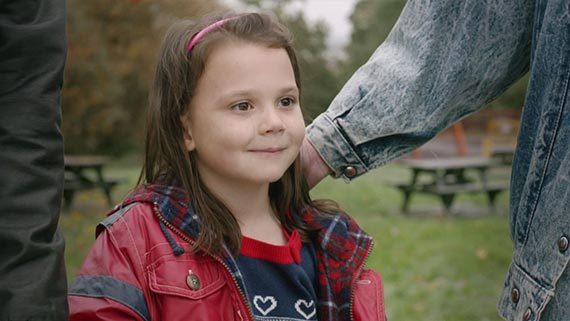
Forgive me for what must sound like the exaggerated gushing of an excited fan, but I can’t help but marvel at the intelligence and depth with which this companion’s narrative has been realized. From the intricate foundations laid in her initial run to the unabashedly pronounced development of Series 8, it’s evident that this climax was Steven Moffat’s objective from the beginning. However, of the chapters in this loose three-act structure, it’s Series 9 that pronounces itself the crowning triumph. Despite being the one in which Clara technically appears the least (she’s all but absent for a quarter‘s worth); I believe it to be the most astute, thoughtful and fascinating of them all.
We began this study with establishing certain core attributes of Clara’s character; then we proceeded to review the parallels between her and the Doctor, in addition to analyzing the progression that complemented this motif. Here, we’re going to take a slightly different approach. There’ll be no red highlights this time (they were mainly intended to address the supposition that Clara in Series 7 and 8 were completely separate people), and due to the sheer volume of relevant material we’ll be covering the majority of the episodes in Series 9 to some degree. Most importantly, where I would normally introduce the main line of thinking for this chapter, this time we won’t be doing so until Part 3. Instead, consider these first two parts the setup preluding the payoff.
With that in mind, let’s set forth on one last adventure with the Impossible Storyteller…

Our segue bridging the downbeat conclusion of ‘Death in Heaven’ and the exhilaration of ‘The Magician’s Apprentice’ takes the form of ‘Last Christmas’, but to label it so does not do the special justice. This episode represents a turning point of epiphany that launches Clara in a new direction and redefines her relationship with the Doctor; whilst also providing us with a scope of insight we’ve not been privy to before. The hypothetical premise of the ‘missed years of Clara Oswald’ allows us to reflect on an alternative future; a ‘what could have been’ through which we can discern much about the character’s desires and where her heart lies.
Clara’s life without the Doctor is neither presented as explicitly positive or negative; rather it’s immersed in a sense of poignant wistfulness and the bittersweet. She reached a ripe old age; travelled as she’d always longed, but she was also alone, and lonely. Behind the cheerful guise her words are heavy with pensive longing (“Oh, how was my life, you mean?”). There’s an air of profound sadness at the thought that a character so enthralled by the wonders of the universe could be restrained by a fate so comparatively… well, mundane (“Regrets?” “Oh, hundreds. I just wish there were time for a few more”). For this reason it’s all the more rewarding when the scene is revealed to be little more than a dream, or perhaps Clara’s personal nightmare.
If there were one word with which I would summarize ‘Last Christmas’, it would be ‘acceptance’. After half a year left in the ruins of loss, it took what else but a fantasy to guide Clara through her grief and restore her faith in the impossible. Though amidst this we witness something even more remarkable: The struggle to differentiate construct from reality echoes Clara’s own journey of discovery as she begins to find affirmation in herself. Against the odds she receives a second chance; the opportunity to tell the story she was made for. Hand in hand, the Doctor by her side, perhaps it’s finally time to do away with some of the pretenses. This is where Clara Oswald belongs: In the TARDIS, with all of time and space waiting for her.
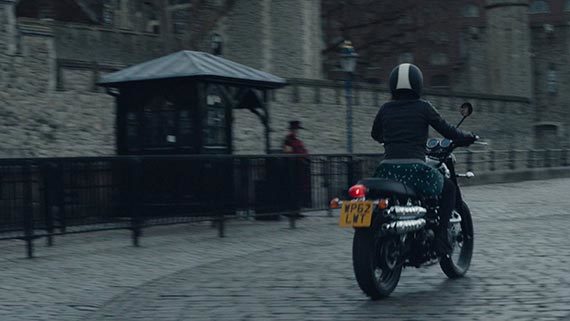
From the outset Series 9 introduces a new tone, and not least for Clara. We’re back in a classroom at Coal Hill, but the English teacher isn’t in a manic fluster as she tries to lead a double-life; ranting at the caretaker’s apparent friendship with a historical figure. Instead, with a playful smile she’s reminiscing about her encounters with the same 18th century author – failing to recognize that to the average person this might appear more than a little bizarre. The cover that she so carefully tried to uphold has been discarded in favour of someone much more at ease with herself; even if that means furthering her already considerable dissonance with the ‘normal’ world.
Clara’s lesson is interrupted the moment she spots something out of the ordinary. Springing straight into action, investigating once again takes priority over her profession; though one must question whether it can really be described as such anymore. “Miss Oswald, there’s a call at the office,” promptly abandoning her students to assist UNIT, she’s the organization’s go-to second only to the Doctor himself, seen as a figure of authority and expertise during times of international crisis. Not for the first time Clara’s granted a jurisdiction far above and beyond that of a simple schoolteacher. Just which one is the job, exactly?
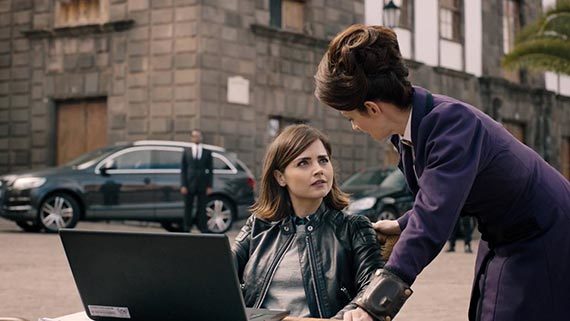
There’s a noticeable distinction in the way that Clara and Kate Stewart respectively approach the situation with the frozen planes. Ever the (titular) Magician’s apprentice; continuing the big-picture, “on balance” mindset showcased in ‘Flatline’, the former deems their predicament as little more than “gossip” until they can gain a better understanding of who’s behind it (note that she’s eager to figure things out without the Doctor’s help – “Come on! What have we got?”). In essence, Clara is preoccupied by the motivation (“What kind of attack advertises?”), with Kate more concerned about those affected (“That’s a lot of people”).
Indeed, its not until she’s faced with an old enemy that Clara wavers in her confidence. The demented orchestrator in a trio of egomaniac needy game players, it’s Missy who pulls the strings; delighting in the chaos whilst also being surprisingly ignorant of its true nature (we’ll get to that). Interestingly, her dynamic with Clara is rather difficult to pin down. ‘The Witch’s Familiar’ is named thus in reference to their relationship; implying a certain inequality and subordination on the latter’s part. In accordance with this analogy the episode titles commence as she’s following Missy with ‘wand’ in hand, then later trailing behind as a ‘Dalek’ (not to mention the comparisons with animals, the common form of a ‘familiar’ – “you’re the puppy”).

Make no mistake though, there’s an element of jealousy and dare I say, a hint of respect to be found here. The so-called ‘Queen of Evil’ is almost (as per the script) ‘unnerved’ by the Doctor’s devotion to Clara, and ‘resentful’ at her confidence in their bond. This seems odd considering Missy’s hand in it, but perhaps that’s indicative of her misjudging the crux of her own plan. I also get the impression that she’s more impressed by Clara than she would ever let on: there’s this slightly disconcerting mutual fascination and circumspect between the two women. “You’re not his friend, you keep trying to kill him” “He keeps trying to kill me, it’s sort of our texting” By that logic, Clara and the Master more than qualify for her twisted definition of friendship.
As is the case with most episodes, the opening two-parter could easily occupy an entire article in and of itself with regards to Clara’s character alone. There’s much to be said on the parallels surrounding Oswin and Clara prime, for example, and the divergence in how they assert their identity when trapped within a Dalek. But I digress, for focus’s sake we’ll concentrate on three crucial words: “Consider the Doctor”. Although the initial sequence of ‘The Witch’s Familiar’ does (loosely) pertain to the plot, greater is its role in setting up the core notion of the Doctor’s impossible knack for enduring against insurmountable odds. “Why does the Doctor always survive?” is a question that sits at the heart of Clara’s course for this series – as we’ll discover.

Toby Whithouse’s excellent ‘base under siege’ story takes an interesting, if at times conspicuous angle towards her characterization. It’s the first in the run to really delve into Clara’s shift in attitude and the oft-mentioned ‘recklessness’ that filled the pre-series promotion. Impatiently craving the next adventure, she’s every bit the adrenalin junkie the Doctor is (“Monsters, things blowing up!”) – much to his concern. Their exchange in the TARDIS is eminently telling in its framing; not least because it demonstrates that the mirror is by no means one-sided. In a similar manner to ‘In the Forest of the Night’, the Doctor has taken her own words to heart; commenting on his “duty of care,” trying to intervene in the best way he knows: hers.
Nevertheless, Clara’s behavior is a natural outcome of her recent development, in that she’s now presenting a much more honest version of herself; one that’s set on the thrill of the mystery and less troubled by the need to project an idealistic persona. It’s at its most pronounced when you observe her interactions (or lack thereof) with the Drum’s crewmembers. Historically Clara has shown a strong propensity for establishing a rapport with those around her (e.g. Professor Grisenko, Journey Blue, Masie among many others): conversely, her efforts to engage or form any sort of connection here are minimal – perfunctory even. She exhibits the somewhat ‘out of touch’ perspective cultivated in the latter half of Series 8; in this case born of a single-minded desire to pursue excitement as supposed to flat-out callousness. Yet that doesn’t stop her from automatically expecting to be considered and respected (“I’m fine, by the way, in case any of you were worried”).
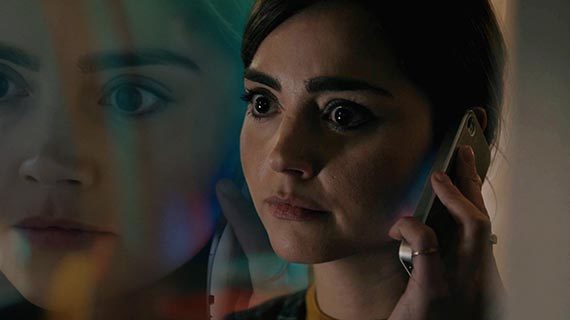
The appearance of the Doctor’s ‘ghost’ incites a sudden change in tone from the unfazed “this is how we roll” demeanor. ‘Before the Flood’ makes a point of emphasizing Clara’s desperation and outright refusal to accept the possibility of losing the person closest to her; building upon a well-founded innate (and shared) characteristic. Within their phone conversation there are echoes of her inability to come to terms with the Eleventh Doctor’s fate on Trenzalore, demanding that the Time Lords “change the future,” or threatening her best friend in an extreme bid to bring back Danny.
We’ve seen time and time again that Clara will do anything to save the people she cares about; the laws of time be damned (“I don’t care about your rules or your bloody survivor’s guilt!”). Moreover, she turns her eloquence and insight to emotional leverage (the same way she did a few episodes prior – “don’t apologize, make it up to me”) as she bargains for the Doctor’s life: holding him to ransom with their friendship. The familiar belief of being “owed” that drove her to the edge of a volcano burns just as hot and cuts just as deep; branded in the words “If you love me in any way, you’ll come back”.
This capability for passionate ruthlessness meets the hard pragmatism that Clara’s learned to adopt in her travels. Sending Lunn into danger is done out of necessity, but with an obstinate and cool poise that warrants Cass’ ‘companion-esque’ disapproval (“I know that look, I do that look!”). Her actions shouldn’t be mistaken for something new, however: they invoke a frantic young woman’s attempt to force Emma Grayling in the path of peril, or the “you’ve killed us all” spat as she carries out her plan to defeat the Boneless. The answer to ‘Did traveling with the Doctor change you, or were you always happy to put other people’s lives at risk?’ is really ‘both’.
Join us next time for Part 2, where we’ll be following Clara throughout the middle of Series 9…




